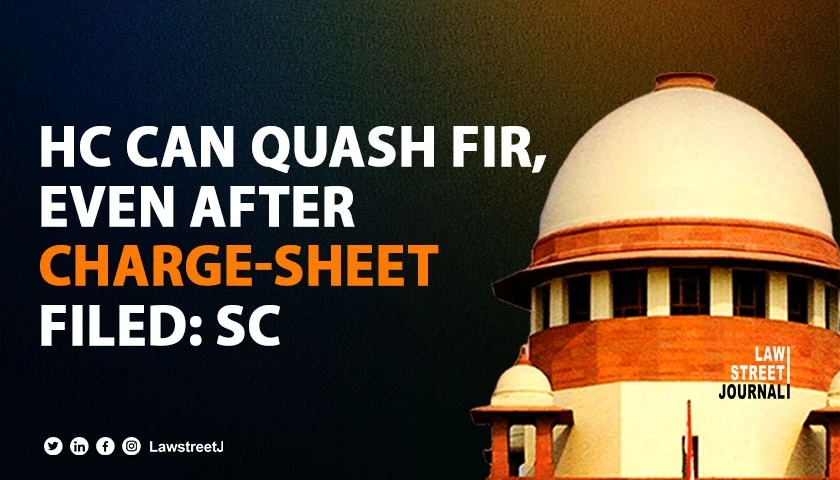New Delhi: The Supreme Court of India has affirmed the power of courts to quash FIRs even after charge sheets have been filed, emphasizing the need to consider changed circumstances and prevent the abuse of the legal process.
Justices Dipankar Datta and Ujjal Bhuyan heard two criminal appeals challenging the Gujarat High Court’s refusal to quash an FIR filed under Section 498-A of the Indian Penal Code.
The court emphasized a crucial legal principle, stating, “The High Court under Section 482, Cr. PC, retains the power to quash an FIR, even after a charge-sheet under Section 173(2) thereof is filed, provided satisfaction is reached, inter alia, that either the FIR and the charge-sheet read together, even accepted as true and correct without rebuttal, do not disclose the commission of any offense or that continuation of proceedings arising out of such an FIR would, in fact, be an abuse of the process of law as well as of the Court, given the peculiar circumstances of each particular case.”
Applying this principle to the case at hand, the court noted, “On the facts and in the circumstances of the present case, it is considered appropriate to give a quietus to the long-standing dispute between the private parties.”
The court observed that the complainant and her ex-husband had obtained a divorce by mutual consent in 2004, and the complainant had since remarried and had children from her second marriage.
The court stated, “The complainant and the appellant in Criminal Appeal No.1885/2013 have since severed their marital ties in 2004. The complainant is in her family way upon such severance of ties with the said appellant, and both the complainant and the said appellant are presently based out of India, well-settled in their respective lives.”
Expressing concern over the continuation of proceedings despite changed circumstances, the court noted, “That the complainant has no inclination to have her marital life disturbed is also evident from her non-participation in the present proceedings. That apart, the allegations leveled in the FIR are mostly vague and general in nature.”
The court concluded by invoking its powers under Article 142 of the Constitution of India, stating, “Since the complainant is unrepresented, we deem it worthwhile to invoke our powers under Article 142 of the Constitution of India for quashing the FIR, the charge-sheet, and all other proceedings in pursuance thereof.”
In conclusion, the Supreme Court’s decision reaffirms the courts’ power to quash FIRs and subsequent proceedings, even after charge sheets have been filed, when circumstances have significantly changed and continuing the case would amount to an abuse of the legal process.













